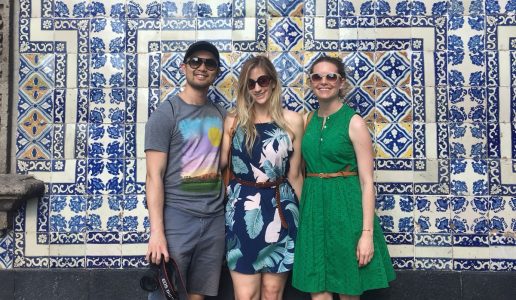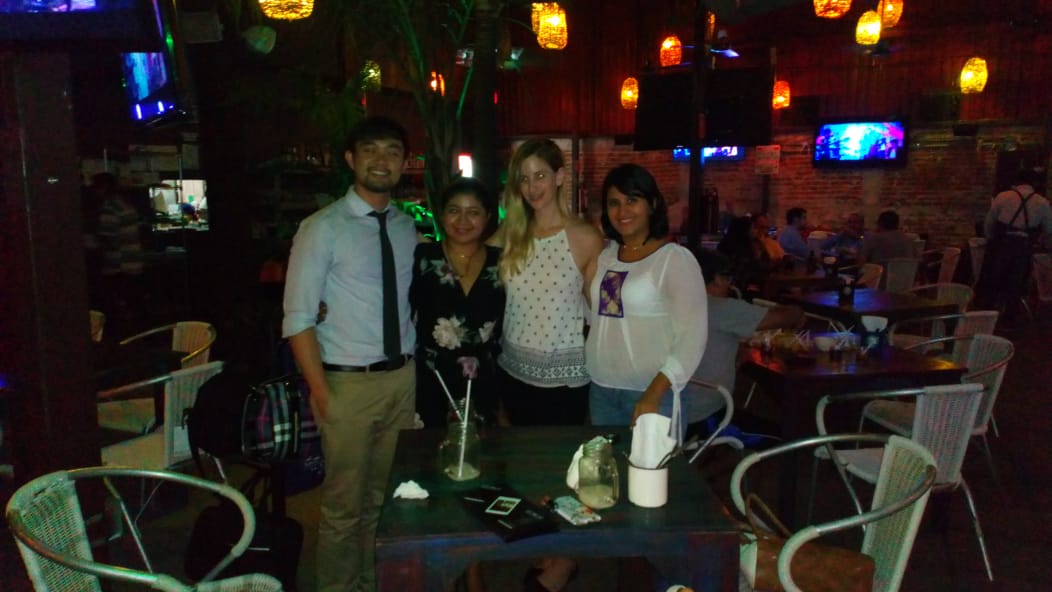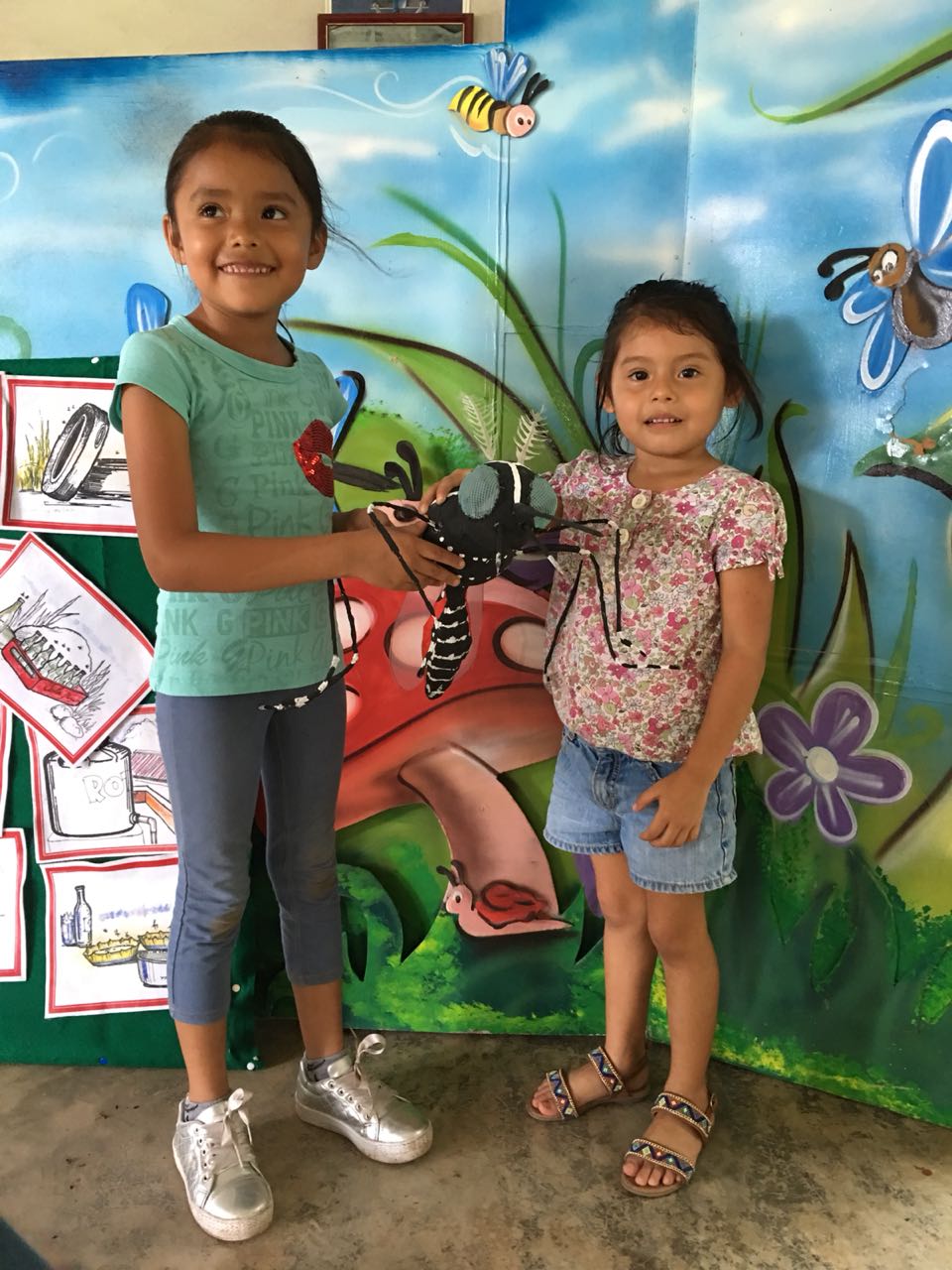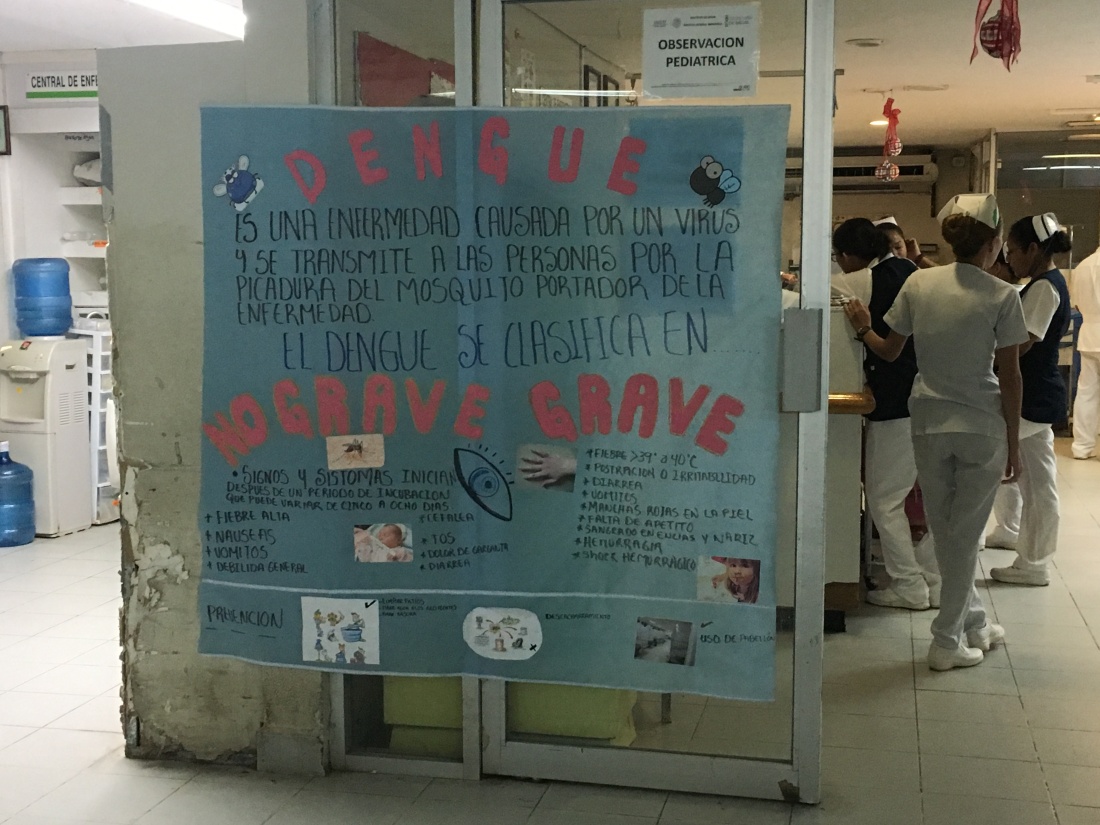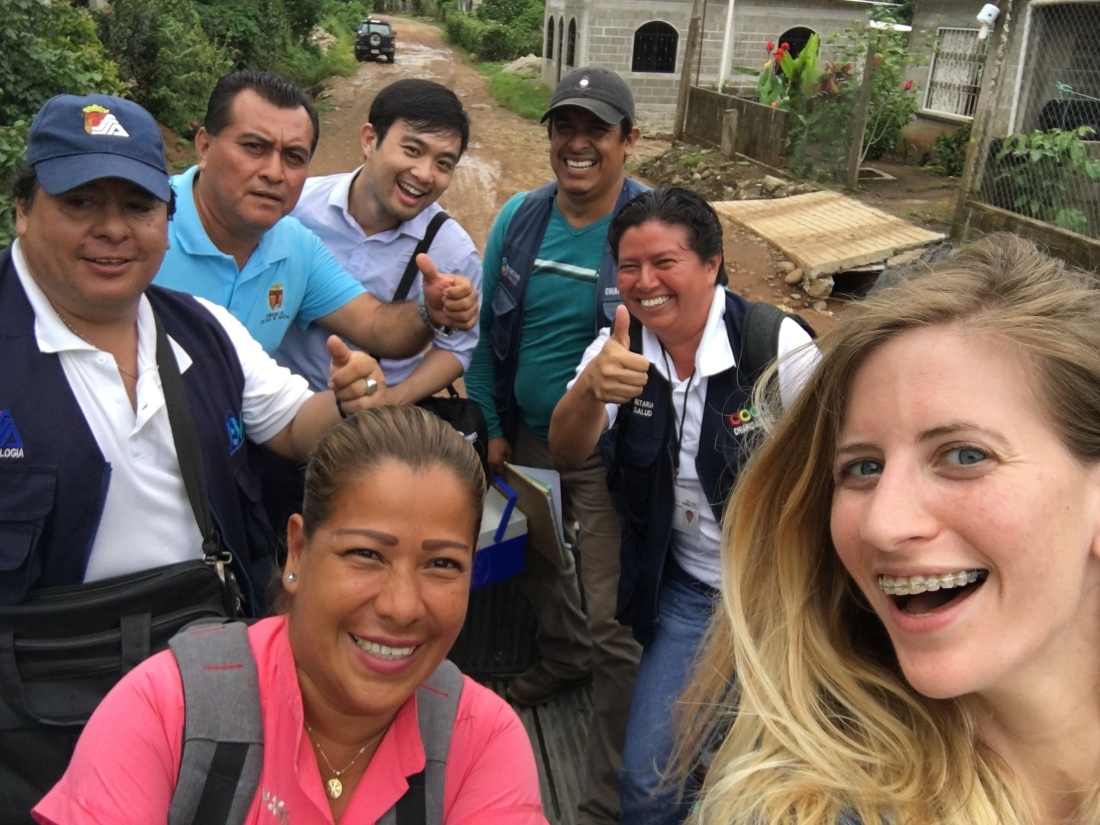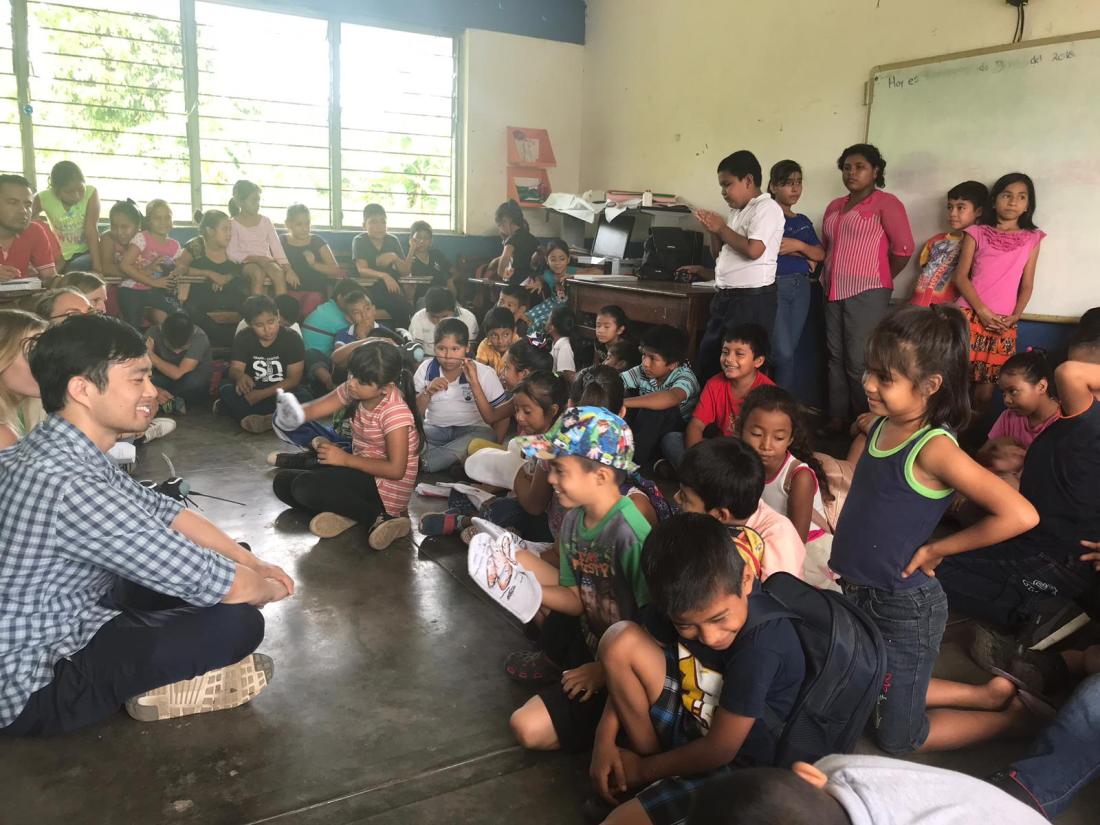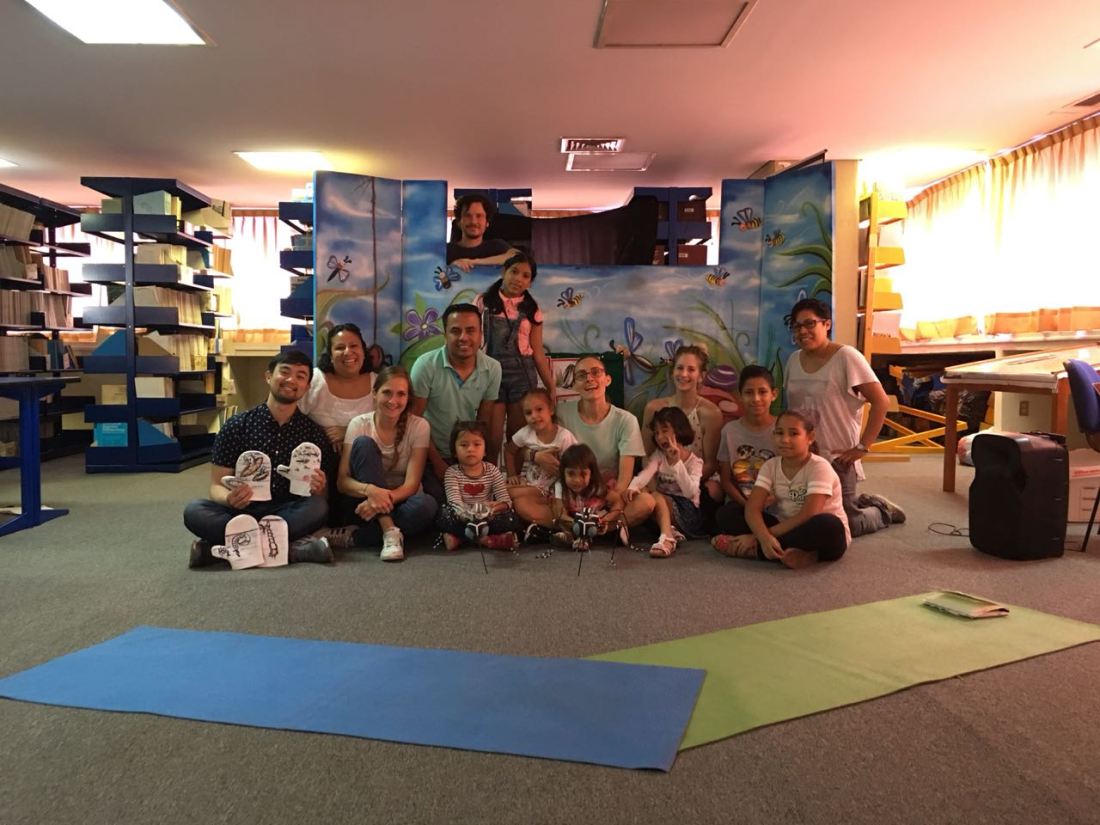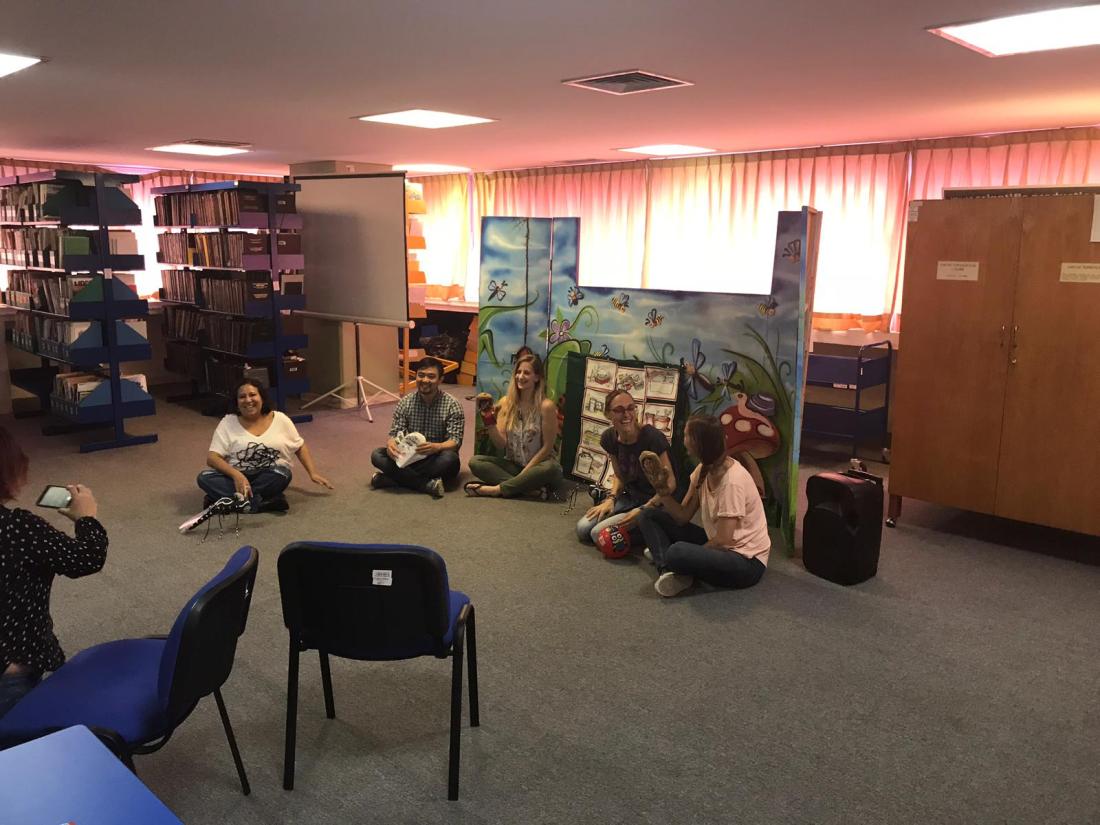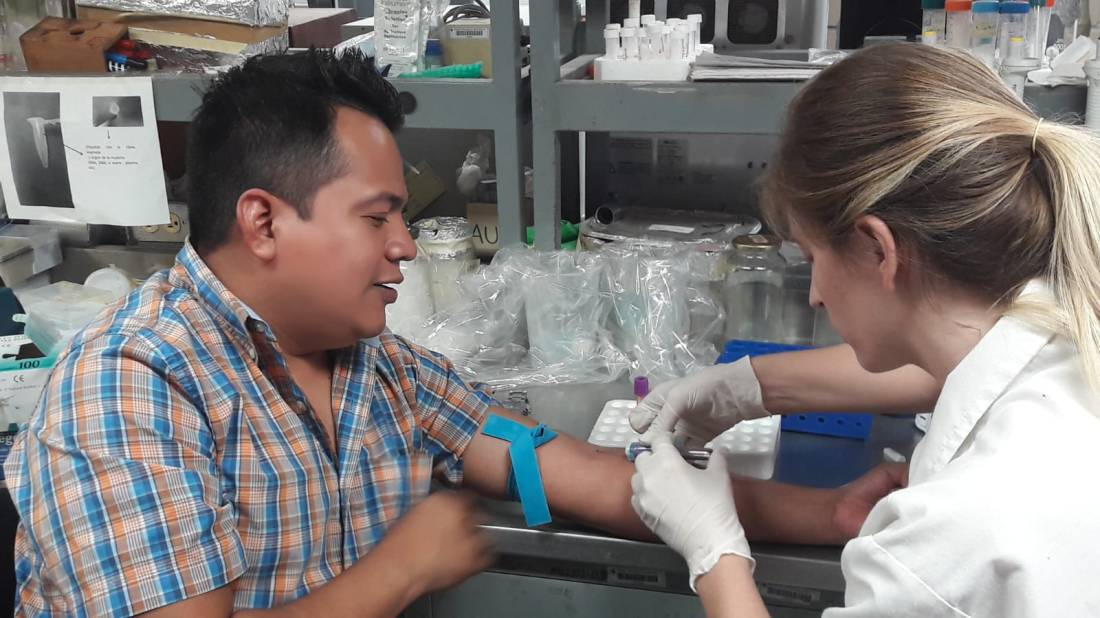A day filled with delicious farewell food with all of our colleagues! We spent the morning saying farewell to all the wonderful people at CRISP that offered us so much support during our time here. It was difficult at times to adjust to the culture, the expectations, the weather—but our colleagues remained encouraging and sympathetic. They are without a doubt the largest reason I consider this internship a success.
After a lovely breakfast with the Ecosur and CRISP crew we headed over to the hospital for our final day. As busy as ever, it was filled with new dengue admissions, Guillain-Barré, eclampsia, and HIV among other conditions. Peter and I spent the evening taking histories and physicals and we made our first solo diagnosis: Dengue No Grave.
To cap the day off, we had a lovely dinner with Dra. Romero and a chemist from the hospital. Like I said, it’s the people that have made this trip such a success. The people and the opportunity for such hands-on experience are the reasons I’m considering returning for rotations—there’s so much to be learned and nearly everyone is willing to help you tailor the experience to your needs.
And with that, here is some advice if you’re considering the internship or future travel in Tapachula:
- Be willing to chase down every opportunity. This internship tests your comfort levels—its in a different language and culture, and the expectations from medical students are different. Rise to the challenge.
- Recognize cultural differences. Our favorite experience was hiking Volcan Tacana to discover a waterfall and spending the afternoon with a lovely woman from the community who made us handmade tortillas and chicken. We never would have discovered this experience if we hadn’t been open to spending the weekend at the home of one our CRISP colleagues—the offer may seem odd to us as Americans, but it was great! On the flip side of cultural differences, machismo is fairly evident—have an idea of how you’ll handle it if/when you encounter it.
- Take advantage of your surroundings! San Cristobal is worth a weekend—a charming with amazing local communities and excellent hiking. Palenque is beautiful. The waterfalls Agua Azul and Misol ha are worth the trip. If coffee is your thing, go to a Finca and take a tour! Even if coffee isn’t your thing, it’s worth it. Beware that the majority of travel is by bus and the roads are pretty windy. Also, every bus ride is going to be at least 8 hours. It’s usually worth it!
- Eat all the tasty Mexican food! We recommend El Mitote, Pacos Tacos, Café Soconusco, Wings Army, and Hamburgueseria Central (yeah, we know, some of these aren’t Mexican—still tasty!). Try tamales de chipilin! Actually, try all the tamales.
- Ask your colleagues for recommendations! Especially Cesar, that man knows everything.
